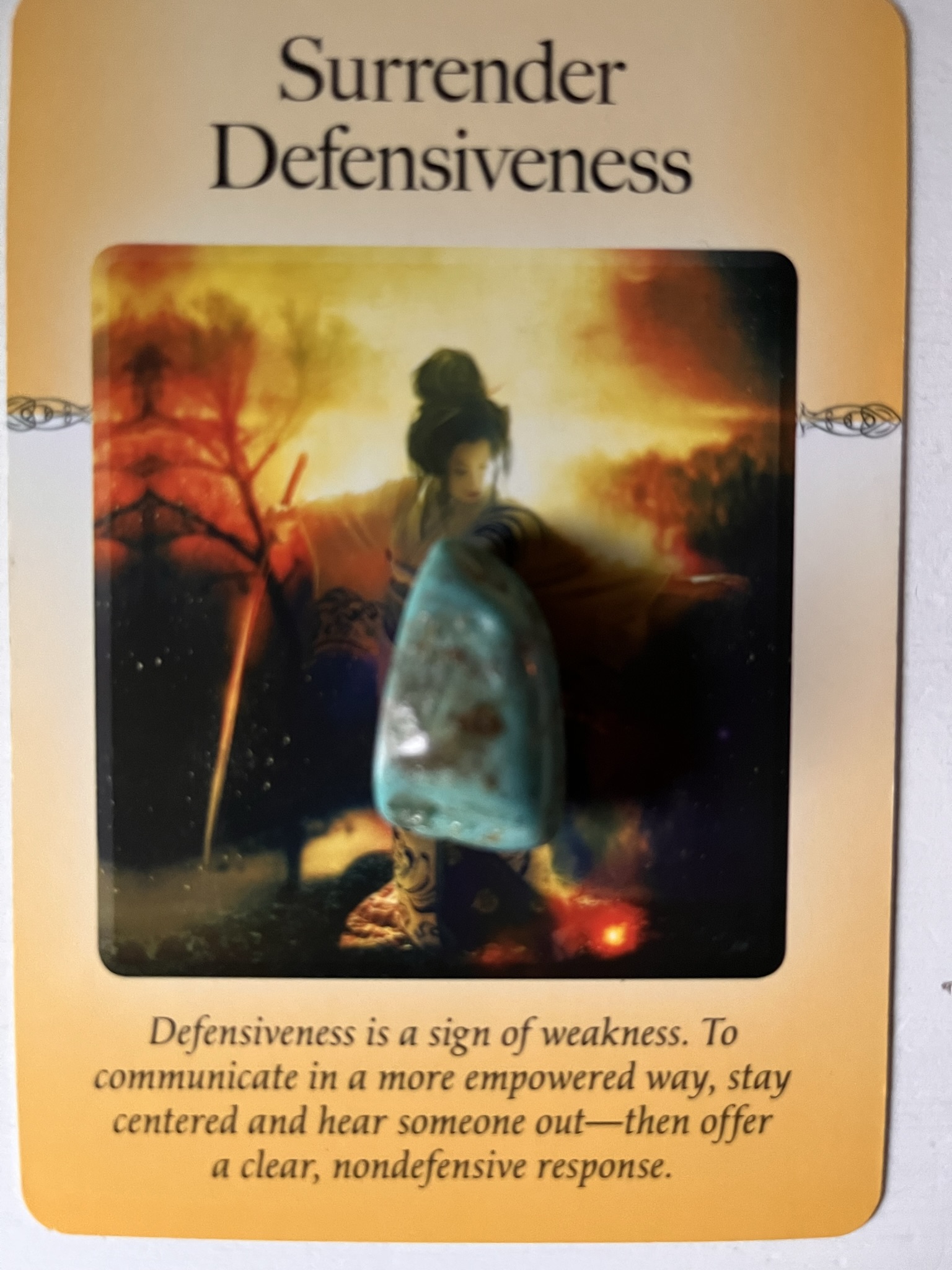Surrender Defensiveness

Surrender Defensiveness
Defensiveness is a sign of weakness. To communicate in a more empowered way, stay centered and hear someone out—then offer a clear, nondefensive response.
Surrendering defensiveness involves letting go of the need to constantly protect and justify oneself in communication, recognizing that this behavior often stems from a place of insecurity or fear. Embracing a more open and empowered form of communication can lead to greater understanding, connection, and self-confidence. Here are some strategies for surrendering defensiveness:
Cultivate self-awareness: Become mindful of your emotions, thoughts, and reactions in conversations. Recognize when you’re feeling defensive and take a step back to examine the underlying reasons for this response.
Practice active listening: Focus on truly hearing and understanding the other person’s perspective, without interrupting or planning your response. By actively listening, you can gain valuable insights and foster a more empathetic and constructive dialogue.
Stay centered: When faced with criticism or differing opinions, strive to remain calm and composed. By staying centered, you can respond more thoughtfully and rationally, rather than letting your emotions dictate your reactions.
Separate the issue from your identity: Understand that feedback or criticism is often directed at a specific issue or behavior, rather than at you as a person. By separating the issue from your identity, you can prevent defensiveness and engage in more productive conversations.
Choose your battles: Recognize that not every disagreement or criticism requires a defensive response. Determine which issues are worth addressing and which can be let go to maintain a sense of inner peace and balance.
Embrace vulnerability: Acknowledge your imperfections and be open to growth and change. Embracing vulnerability can help you let go of defensiveness and foster deeper connections with others.
Practice empathy: Put yourself in the other person’s shoes and try to understand their feelings, needs, and motivations. By practicing empathy, you can respond with compassion and understanding, rather than defensiveness.
Use “I” statements: Express your thoughts and feelings using “I” statements, which help convey your perspective without blaming or accusing the other person. This can lead to more open and constructive communication.
Seek common ground: Find areas of agreement or shared understanding with the other person, as this can help defuse defensiveness and create a more cooperative atmosphere.
Reflect and learn: After engaging in a conversation, take the time to reflect on your responses and identify any areas where you may have been defensive. Use this self-awareness to grow and improve your communication skills.
Surrendering defensiveness requires recognizing and letting go of the need to constantly protect and justify oneself in communication. By embracing a more open and empowered form of communication, you can foster greater understanding, connection, and self-confidence. By cultivating self-awareness, active listening, and empathy, you can respond more thoughtfully and authentically, leading to more productive and harmonious interactions.
YouTube - Morning Compass Surrender
Get Your Own Surrender Cards
Try to buy local, if not available use the link below:

